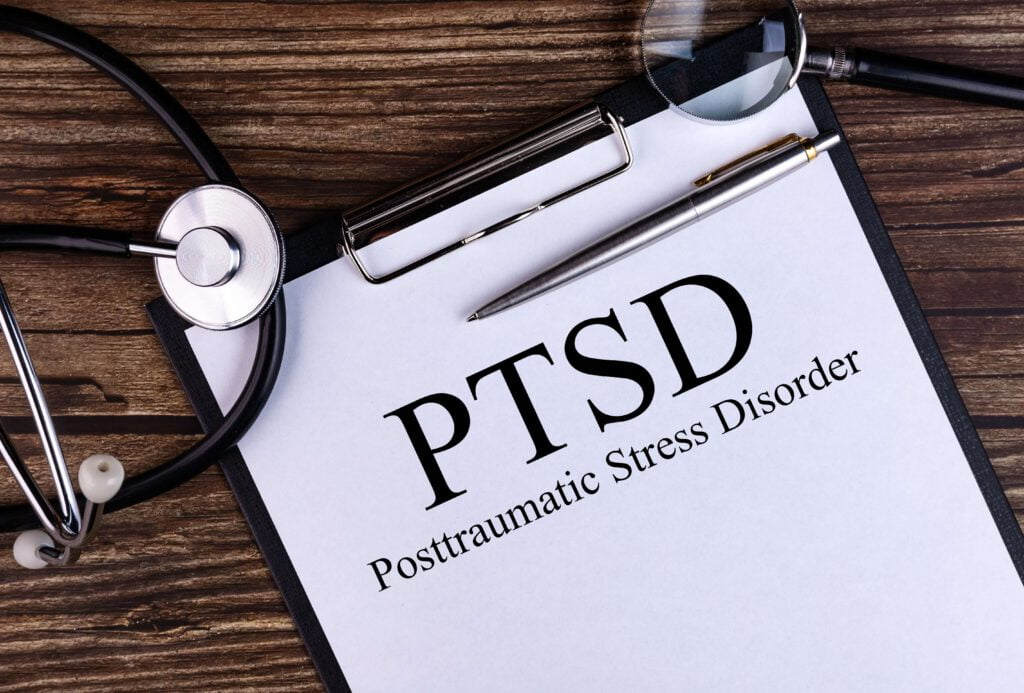Post-Traumatic Stress Disorder (PTSD) Treatment for Teens and Adolescents in Dallas, Texas
Post-Traumatic Stress Disorder (PTSD) Treatment for Teens in Texas
BasePoint Academy, located in the heart of Texas, offers luxury treatment facilities designed specifically for teenage boys and girls. With centers spread across Dallas, Arlington, Forney, and McKinney, we extend our reach to serve as many teens in need as possible. Our Post-Traumatic Stress Disorder (PTSD) treatment in Texas is available at all these locations, providing comprehensive mental health care while allowing teens to continue with their daily routines.
At BasePoint, we understand the importance of early intervention in mental health issues. That’s why we offer free mental health assessments for teens. We also accept insurance for our mental health treatment programs to ensure that quality care is accessible to all. Understanding that every family’s financial situation is unique, we offer various payment options tailored to suit different needs. If you’re searching for trusted teen PTSD treatment or post traumatic stress disorder treatment centers in Texas, BasePoint Academy is here to help—call us today to schedule a free mental health assessment.
What is PTSD?
Post-traumatic stress disorder (PTSD) is a mental health condition that develops in some people after they have experienced or witnessed a shocking or traumatic event. While it is natural to feel afraid when something traumatic is happening and immediately after, people with PTSD continue to experience a range of reactions after most people have recovered from the initial symptoms.
Nearly anyone can develop PTSD at any age. It can happen after a person has experienced or witnessed physical or sexual assault, abuse, a disaster, an accident, bullying, or the loss of a loved one. A teenager with PTSD may experience stress or fright when they’re not in danger. Recognizing the signs early is essential—effective teen PTSD treatment can help your child process trauma and begin to heal.
Different Types of Post-Traumatic Stress Disorder (PTSD)
The symptoms of PTSD usually begin within the first three months after a teenager has experienced a traumatic event, but sometimes they emerge later. Several different types of post-traumatic stress disorder can be treated at BasePoint Academy. These are some examples but it is not a full list.
Acute Stress Disorder (ASD)
This mental health condition typically occurs in the first month after a traumatic event and the symptoms last for longer than one month. Generally, acute stress disorder happens more frequently in survivors of violence, such as an assault or a mass shooting, than in other types of trauma such as an accident or surviving a typhoon.
Complex PTSD (C-PTSD)
In cases where people experience repeating, chronic trauma, the psychological damage that occurs falls under the diagnosis of complex PTSD. The types of trauma may include childhood sexual trauma, abuse, or neglect. The duration of exposure is linked to the diagnosis, and can occur in adults, such as those trapped in long-term domestic violence or who are refugees.
Delayed-Onset PTSD
Teenagers with delayed onset PTSD do not develop symptoms until at least six months after the traumatic event. This diagnosis has been observed in the elderly who may have developed PTSD from a traumatic event that occurred when they were younger. People with some symptoms, but not enough to meet the criteria for diagnosis, may be at higher risk.
Comorbid PTSD
Comorbid PTSD describes a mental health condition in which a teenager has PTSD in addition to co-occurring mental health conditions that impact treatment and recovery. Symptoms of anxiety and depression are part of the diagnosis of PTSD, but may be diagnosed separately, as well as eating disorders, social phobias, and obsessive-compulsive disorder, to name a few.
Secondary Traumatic Stress (STS)
Secondary traumatic stress is also called compassion fatigue. It is a byproduct of working with people who have undergone traumatic experiences. This is a condition that more frequently affects healthcare professionals and includes symptoms of anxiety, sleep disturbances, physical ailments, and feelings of isolation. Teenagers with siblings who have chronic illnesses or who are frequently hospitalized may experience symptoms.
Developmental Trauma Disorder (DTD)
Developmental trauma disorder can be characterized by symptoms that are related to the inability to recover from severe states of fear, anger, or shame. This is inextricably linked to disruptions in their psychological development, social cognition, and attachment to others. The teen may also have dysregulation in their relationships, behaviors, and functions.
Teen PTSD Treatment Admissions and Intake
Our complimentary assessment with a licensed clinician will provide you with a recommendation for the appropriate level of care for your teen struggling with ADHD. We can also check your insurance coverage levels.
Call us today to schedule a complimentary same day assessment at (972) 357-1749 or fill out our inquiry form.
Find Out About Our Same Day Admissions
Effects of Post-Traumatic Stress Disorder (PTSD) in Teenagers
When you want to know how to help a teen with PTSD, it helps to understand the effects that post-traumatic stress disorder has on your young adult. Below are examples of how post-traumatic stress disorder can affect your teens’ everyday life.
Re-Experiencing Symptoms
When teens re-experience they have sudden, unwanted, and intrusive memories that may seem to be happening in front of their eyes, called flashbacks. This is a hallmark symptom of PTSD. Other re-experiencing symptoms include recurrent nightmares, having a physical response to a reminder of the traumatic event, or experiencing strong feelings of stress when reminded of the event.
Avoidance Symptoms
Avoidance symptoms cause your teenager to change their routine to stay away from what reminds them of the traumatic experience. For example, your young adult may avoid riding in a car after a serious car accident or avoid grocery stores after an armed robbery. Avoidance symptoms also include avoiding feelings or thoughts that are related to the traumatic event.
Arousal and Reactivity Symptoms
Symptoms of arousal and reactivity include a significant startle response, feeling tense or on edge, and having difficulty concentrating. Arousal symptoms are typically constant and can interfere with daily life, including an alteration in sleeping and eating patterns. Your teen may feel irritable and engage in destructive behaviors.
Negative Changes in Mood and Cognition
These symptoms may start after the event or may worsen if your teenager had mild symptoms before the event. They can lead to your adolescent feeling detached from their friends and family. Negative cognition and mood symptoms include a loss of interest in previous activities, feeling isolated, having exaggerated feelings of blame towards themselves or others, and having negative thoughts.
Changes in Emotional Regulation
Emotional regulation is the ability to control your emotions. Maladaptive emotional regulation strategies involve thinking repetitively or passively about negative emotions. This can predict depression and anxiety. Most people use a variety of strategies to regulate their emotions and deal with challenging situations, including seeking emotional support, distraction, problem-solving, and concealing their emotions.
Guilt and Shame
Guilt and shame emerge after a traumatic event. Feelings of guilt can contribute to the development of PTSD and reducing guilt is therefore a crucial element in successfully treating the condition. A sense of guilt may be linked to surviving when others haven’t or regretting decisions that were made that led to a traumatic event for yourself or someone else.
School-Related Difficulties
Symptoms of PTSD are overwhelming and often disruptive. They are associated with school-related difficulties, including declining performance, inability to function under stress such as during test-taking or oral exams, and hypervigilance and high startle reflex that is disruptive in the classroom.

DON’T IGNORE THE SYMPTOMS
Signs and Symptoms of PTSD in Teens
After witnessing or experiencing a traumatic event, your teenager may exhibit symptoms of PTSD. Most people will have temporary difficulty adjusting and coping after such an event. With time and effort, many people get better. However, some find that the symptoms get worse and last for months and even years.
Symptoms of PTSD may be grouped into four different types: changes in physical and emotional reactions, negative changes in thinking in mood, avoidance, and intrusive memories. Symptoms of changes in physical and emotional reactions can include always being on guard, alterations in sleeping and eating patterns, exaggerated startle response or easily frightened, trouble concentrating, and overwhelming feelings of guilt and shame.
Symptoms of avoidance include avoiding talking about or thinking about the traumatic event and avoiding the places or people that remind you of what happened. Your teenager may experience intrusive memories that are recurring, unwanted, and stressful. These memories are of the traumatic events and may occur as intrusive thoughts or appear as if they are reliving the traumatic event, also called flashbacks.
Nightmares and bad dreams about the events and severe physical or emotional reactions to something that reminds you of the event are also intrusive memories. Finally, symptoms of negative changes in thinking and mood can include feeling detachment, lack of interest, hopelessness about the future, or feeling numb. Your teen may have difficulty maintaining close relationships or experiencing positive emotions. If your child is showing these symptoms, it may be time to explore treatment for PTSD in teens to help them regain emotional stability and peace of mind.
BasePoint Academy Accepts health Insurance
We accept most major health insurance providers in Texas and can check your treatment coverage levels on your behalf
TEENAGE MENTAL HEALTH TREATMENT CENTERS NEAR DALLAS, TEXAS
Base Point Academy has several treatment facilities in the Dallas-Fort Worth area, including in Arlington, Forney, and McKinney, Texas. Each of these luxury facilities offers the same level of care from licensed mental health professionals whose focus is providing teenagers with the tools and resources they need to heal and support sustainable recovery from depression and other mental health conditions.
- Arlington, Texas: 3900 Arlington Highlands Blvd, Suite 237, Arlington, TX 76018
- Forney, Texas: 713 W Broad St, Suite 200, Forney, TX 75126
- Frisco, Texas: 8275 Judges Way, Suite 100I, Frisco, TX 75036
- McKinney, Texas: 4733 Medical Center Drive, McKinney, TX 75069

Contact BasePoint Academy Today
Contact us today to schedule a free confidential assessment for your teen with a licensed clinician.
You can also get in touch to talk with our mental health experts about treatment needs, care options and your insurance coverage levels.
Call: (972) 357-1749Check Your InsuranceTypes of Treatment Programs for Teen Post-Traumatic Stress Disorder
BasePoint Academy offers highly structured outpatient programs for post-traumatic stress disorder treatment in adolescents. These in-person and virtual PTSD treatment programs offer your teenager the best possible care in the least restrictive environment. This means they learn new skills during the day and can come home at night to practice them.
Partial Hospitalization Program for Teen PTSD
A partial hospitalization program at BasePoint Academy is designed specifically to address teen challenges with a focus on adolescent psychology. Teenagers experiencing symptoms of PTSD can receive the comprehensive level of care needed to address their mental health disorder. PTSD partial hospitalization programs are five days each week during which your teenager can participate in individual, group, and family therapies.
They also have educational counseling and skills training available that support recovery and academic success. Your teenager may engage in a variety of different types of behavioral and talk therapy as well as mindfulness therapy and experiential therapy. Each of these is designed to address youth counseling focused on coping strategies for trauma and PTSD counseling.
Intensive Outpatient Program for Teen PTSD
An intensive outpatient program offers teenagers the support they need when they’re struggling with complex challenges and mental health concerns. Your teenager has daily trauma-informed care available, including PTSD group therapy and anxiety and stress management that promote recovery. An intensive outpatient program is a step down from a partial hospitalization program.
It offers teenagers who require more than once-a-week therapy the support they need to move forward in life. Within an intensive outpatient program, your teenager can engage in individual, group, and family therapies that incorporate medication management, experiential therapy, and behavioral therapy strategies. As needed, your teenager’s customized plan will include an aftercare plan to support sustainable recovery.
Crisis Stabilization Services for Teen PTSD
The treatment process at BasePoint Academy provides teenagers with strategies to minimize the impact of PTSD stressors. However, when there is an immediate mental health crisis and intervention is required, the BasePoint Academy team can offer crisis stabilization efforts in the least restrictive environment.
In severe cases, your teenager may require inpatient hospitalization or residential care for a short-term to help de-escalate the severity of the crisis to a level where they are no longer an active danger to themselves or others.

What is a Post-Traumatic Stress Disorder Treatment Center for Teenagers?
A PTSD treatment center for teenagers offers adolescent trauma-focused intervention that accounts for adolescent development and teenage emotions. This includes strategic cognitive behavioral therapy for PTSD and adolescent PTSD support for teenagers who have experienced or witnessed a traumatic event. Included in the BasePoint Academy trauma recovery program are resilience-building and relapse prevention strategies.
Not all PTSD programs are equipped to handle the unique challenges associated with adolescent development, while providing teen mental health resources. Additionally, those parenting teenagers must have support and guidance to help their teenager heal and promote sustainable recovery.
Types of Therapy and Counseling for PTSD in Teens
Within a variety of settings, your teenager can engage in several types of therapy and counseling designed to reduce PTSD symptoms in teens. The following are examples of types of therapy in a trauma recovery program, but these are just examples and are not a full list.
Cognitive-Behavioral Therapy (CBT)
Cognitive behavioral therapy is a type of short-term talk therapy that helps your teenager explore the connection that occurs between what they think and how they behave. Teenagers are encouraged to uncover the origin of undesirable behavior and unhealthy patterns using an evidence-based approach to learn how thoughts can lead to overwhelming emotions and unwanted behavior.
Dialectical Behavior Therapy (DBT)
Teenagers with PTSD can experience overwhelming and crippling emotions. Dialectical behavioral therapy is a type of talk therapy that has been specifically adapted for individuals who experience intense emotions. It is an evidence-based approach for treating conditions where issues have resulted from problems with controlling intense negative emotions.
Family-Focused Therapy
The board-certified mental health professionals at BasePoint Academy believe that everyone in the family deserves a safe space to work through the challenges that happen when a teenager has PTSD. Our family-focused therapy sessions help teenagers and their families who are struggling with grief, disruptive behaviors, relationship problems, and self-esteem issues.
Interpersonal and Social Rhythm Therapy (IPSRT)
This adjunctive intervention draws on principles from evidence-based treatment to improve your teenager’s mood and level of functioning by providing them with the necessary skills. This therapy has been especially useful in those who experience depression, which is a co-occurring mental health disorder with PTSD, and those with bipolar disorder.
Psychoeducation
Psychoeducational interventions are a process of providing knowledge, resources, and information to teenagers and their families about the mental health condition that has disrupted their family. This is more than simply sharing education, it’s a structured method of providing knowledge to help teenagers understand and cope with the diagnosis, as well as improve treatment compliance.
Mindfulness-Based Therapies
Mindfulness-based therapies help teenagers who are struggling with overwhelming emotions such as depression and anxiety. The therapy is a form of talk therapy that connects cognitive behavioral therapy with mindfulness practices, ultimately addressing teenage stress and adolescent mental health issues using an evidence-based and holistic approach.
Group Therapy
Teenage peer pressure can trigger negative emotions, bullying, and poor outcomes. However, in a highly structured group therapy setting, teenagers can work together to provide support for each other and accountability while working through post-traumatic stress disorder in an open environment and safe space.

Does Insurance Cover PTSD Treatment for Teens?
Health insurance companies cover PTSD treatment for teens who are beneficiaries of your health insurance policy. In 2010, the Affordable Care Act mandated that all health insurance policies written after 2010 include coverage for essential health services, including mental health conditions and substance use disorders. PTSD falls under this category.
However, not all health insurance policies offer the same benefits and limitations. Your rehab care benefit may limit your teenager’s youth counseling sessions per incident, per year, or over a lifetime. The easiest way to understand your policy’s limitations and benefits is to call BasePoint Academy at (972) 357-1749 or contact us online. The admission counselor will check your insurance coverage, determine if prior authorization is required, and help estimate your out-of-pocket costs.
Which Health Insurance Providers Cover PTSD Treatment for Teenagers?
There are a variety of insurance providers who cover PTSD treatment in Texas. Parents with questions about how to help a teen with PTSD may turn to their insurance company first, but may have more success calling BasePoint Academy to get their questions answered. Health insurance providers that cover PTSD include UnitedHealthcare, Blue Cross Blue Shield, Aetna, Cigna, Optum, and Magellan.
Teen PTSD treatment is often complex and may require consistent communication with your insurance company to ensure that your teenager receives the best possible care to the full extent of their benefits. Call BasePoint Academy today at (972) 357-1749 for more information about how our highly structured outpatient programs can help you and your family.

What is the Adolescent PTSD Treatment Program Admissions Process?
The admission process into a PTSD treatment program varies between facilities. However, in each case, the admission process is designed to ensure that your teenager receives holistic trauma healing and customized treatment plans to support a sustainable recovery. Although the process can vary, this is a general overview of the admission process.
- Initial Contact: During your initial contact, BasePoint Academy admission specialists can verify your insurance coverage and offer you a complimentary free assessment to determine if your teen will benefit from the evidence-based treatments and resilience building at BasePoint Academy.
- Treatment Plan Development: Once you and your teenager decide on the treatment facility, they will undergo a thorough medical examination and psychological assessment on which their customized treatment plan is developed.
- Admissions Coordination: Admissions coordination can include orientation to the facility and the program, as well as offering you and your teenager advice on what they can and cannot bring to the center. Coordination will also include determining if prior authorization is needed before treatment can begin.
- Active Participation in Treatment: Once admitted into the structured outpatient program at BasePoint Academy, our licensed counselors and mental health professionals expect your teenager will actively participate in their treatment plan. Additionally, their progress will be monitored and adjustments will be made to the treatment plan as necessary.
Free PTSD Assessment for Teen Boys and Girls
It can be challenging to identify the signs of PTSD in teens whose adolescent behavior is naturally tumultuous. BasePoint Academy offers a free assessment to identify the symptoms of PTSD in teens and help parents learn how to help a teen with PTSD.
Although there are online questionnaires that you may have found, an evaluation by a licensed counselor is far more effective in identifying PTSD. Our board-certified mental health professionals can help recommend team PTSD treatment that is based on trauma-focused interventions and help support emotional healing in your teenager.


How Much Does Post-Traumatic Stress Disorder Treatment for Teens Cost in Dallas, Texas?
The cost of post-traumatic stress disorder treatment for teens in Dallas, Texas, varies depending on several factors. The first is the cost of treatment from the facility. This cost is based on the intensity of treatment necessary for your teenager. For example, the cost of a partial hospitalization program will be slightly more than an intensive outpatient program.
The second factor is your health insurance policy. Your out-of-pocket costs depend on your insurance policy’s deductible and copay. The deductible is a whole dollar number that must be met before your insurance policy begins to cover costs and the copay is typically a percentage of the remaining charges. When you call BasePoint Academy admission specialists at (972) 357-1749 or contact us online, you can receive an estimate of your out-of-pocket costs after your insurance coverage has been verified.
Statistics on PTSD in Teen Boys and Girls in Texas
- Texas Health Data recorded nearly 12,000 injuries in 10 to 19-year-old boys and girls.
- PTSD is routinely tracked in military personnel. Data show it occurs in roughly 8% of the general population and twice as often in active-duty military personnel.
- According to data from the Center for Advancing Health, 6% of all U.S. adults and 30% of all first responders will have experienced PTSD. The leading causes were violence and rape.
- PTSD is more prevalent in women than men and more frequently diagnosed in people ages 45-59 years. Roughly 9.2% of 45-59 year olds, 6.3% of 18-29 year olds and 5% of 13 to 17 year olds have PTSD.
- Cognitive behavioral therapy can help reduce symptom severity by 50% in up to 46% of adults with PTSD.
- Causes of PTSD in order of occurrence include sexual violence, interpersonal violence, organized violence, life-threatening traumatic events.
- Most sexual assault victims experience symptoms of PTSD within one month of the attack
- Even minor symptoms of PTSD that do not meet the criteria for diagnosis can have a powerfully negative impact on mental health that requires intervention and treatment.
Schedule PTSD Treatment For Your Teen Today
If your teen has been exhibiting mental health issues, substance abuse, or other behavioral health concerns, it’s time to explore effective and focused treatment options. The team of clinicians, counselors, and therapists at BasePoint Academy provide an integrative approach to teen treatment that supports lifelong success. Call today to schedule a complimentary assessment.
Contact BasePoint Academy Today
Get in touch today to talk with our recovery experts about treatment needs, care options and your insurance coverage levels.
Learn More about BasePoint Academy's Free Assessment







